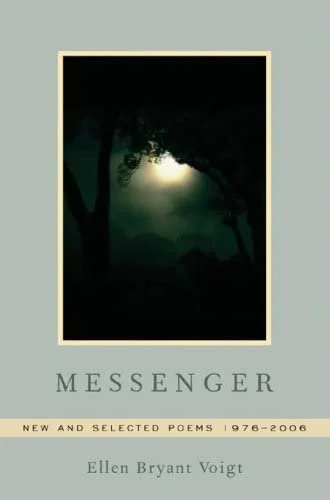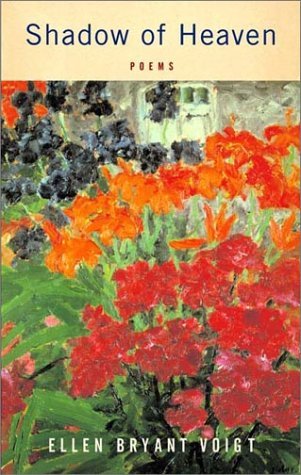Ellen Bryant Voigt was born and raised on a farm in Virginia and moved to Vermont in 1969. She is the author of nine collections of poetry: The Collected Poems (W.W. Norton, 2023); Headwaters (W.W. Norton, 2013); Messenger: New and Selected Poems 1976-2006 (W.W. Norton, 2007); Shadow of Heaven (W.W. Norton, 2002), a finalist for the National Book Award; Kyrie (W.W. Norton,1995), a finalist for the National Book Critics Circle Award; Two Trees (W.W. Norton, 1992); The Lotus Flowers (W.W. Norton,1987); The Forces of Plenty (W.W. Norton, 1983); and Claiming Kin (Wesleyan University press, 1976). Her collections of essays about poetry are The Flexible Lyric (University of Georgia Press, 1999) and The Art of Syntax (Graywolf, 2009). Voigt’s honors include Pushcart Prizes, an award from the American Academy of Arts and Letters, the Poets’ Prize, the 2002 Fellowship from the Academy of American Poets, and the O. B. Hardison, Jr. Prize from the Folger Shakespeare Library; grants from the Vermont Council on the Arts and the National Endowment for the Arts; and fellowships from the Lila Wallace-Reader’s Digest Fund, as well as the Guggenheim and MacArthur foundations.
In 1976, at Goddard College, Voigt developed and directed the nation’s first low-residency writing program—a design for graduate MFA study that has been widely emulated— and later helped guide its reincarnation as the MFA Program for Writers at Warren Wilson College. She has also taught at Iowa Wesleyan College, MIT, and as a visiting writer at many colleges and universities.
In an interview with the Rumpus, Voigt was asked about what happens when she reads her poems aloud. “I’ve always been very strict about following what is scored on the page when I read the poem aloud, just as I am at every stage of composition,” she responded. “And I recommend that a reader do the same. A silent reading misses a substantial portion of what’s going on in almost any poem—its aural components, its connection to poetry’s beginnings as an art that was sung or danced or spoken. This is one of poetry’s great achievements—that paradox: the carefully made thing remains an utterance.
Voigt has served as a Chancellor of the Academy of American Poets and as the Vermont State Poet. She now lives in Cabot, Vermont and St. Paul, Minnesota.








